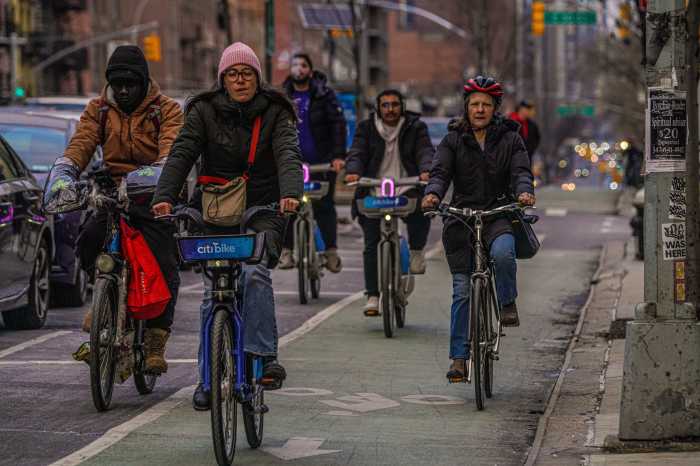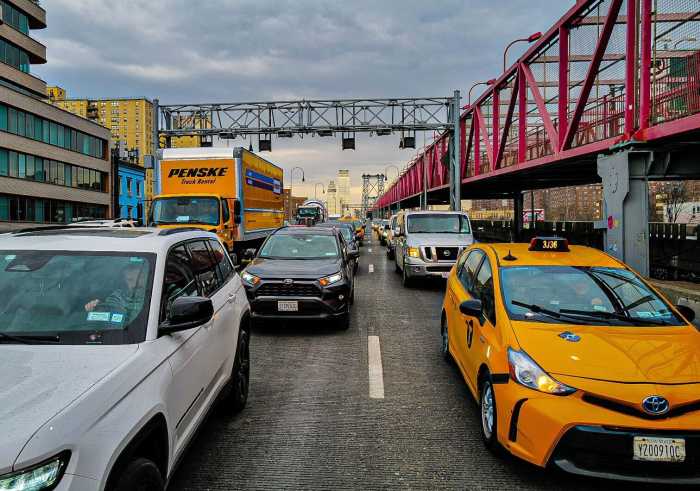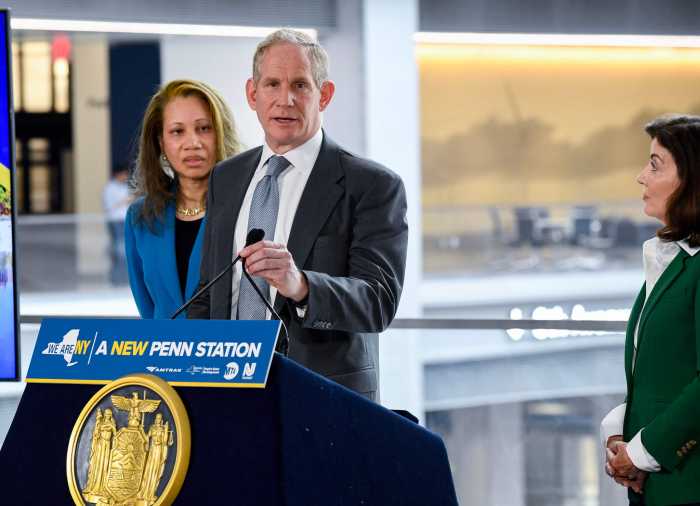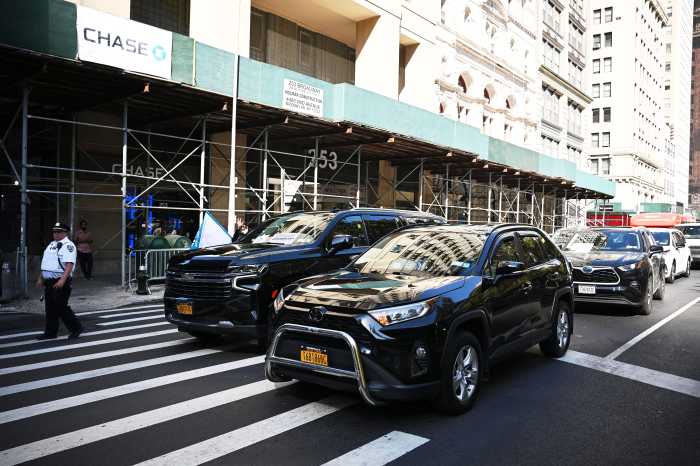Pregnant bus drivers working for the MTA who are suing the transit agency for allegedly skirting requirements to provide reasonable accommodations publicly blasted the authority Tuesday for its alleged failures.
Female subway operators are entitled to take on “restricted duty” positions when they’re expecting a child, but the same rights are not extended to pregnant women who drive one of the MTA’s 6,000 city buses.
Now, six of those women, supported by the Transport Workers Union Local 100, have taken the MTA to court in an attempt to force the agency to acknowledge and accommodate the needs of an increasingly-female workforce.
“I did not realize I would be in this situation, going through financial hardship right now because there’s no such thing as reasonable accommodations at the MTA,” said Latoya Christian, a bus operator from Far Rockaway, Queens, during testimony to the MTA Board on April 30.
Latoya Christian, a 39-year-old Far Rockaway resident and a bus driver for the past 2 1/2 years, is expecting to give birth in July. She says she experiences nausea and vertigo related to her duties as a bus operator on the 6 p.m. to 2 a.m. shift.
“From the bouncing of the bus, I have to get off the bus to vomit,” Christian said Tuesday at the monthly MTA Board meeting. “You know how much of a disruption of service that is? It didn’t make sense.”
By the end of February, Christian had used up all of her paid sick leave — according to the lawsuit which was first reported this month by The City — and was frequently exiting the bus and disrupting service to urinate; she had also been diagnosed with gestational diabetes. Her doctors recommended that she refrain from driving a bus in passenger service.
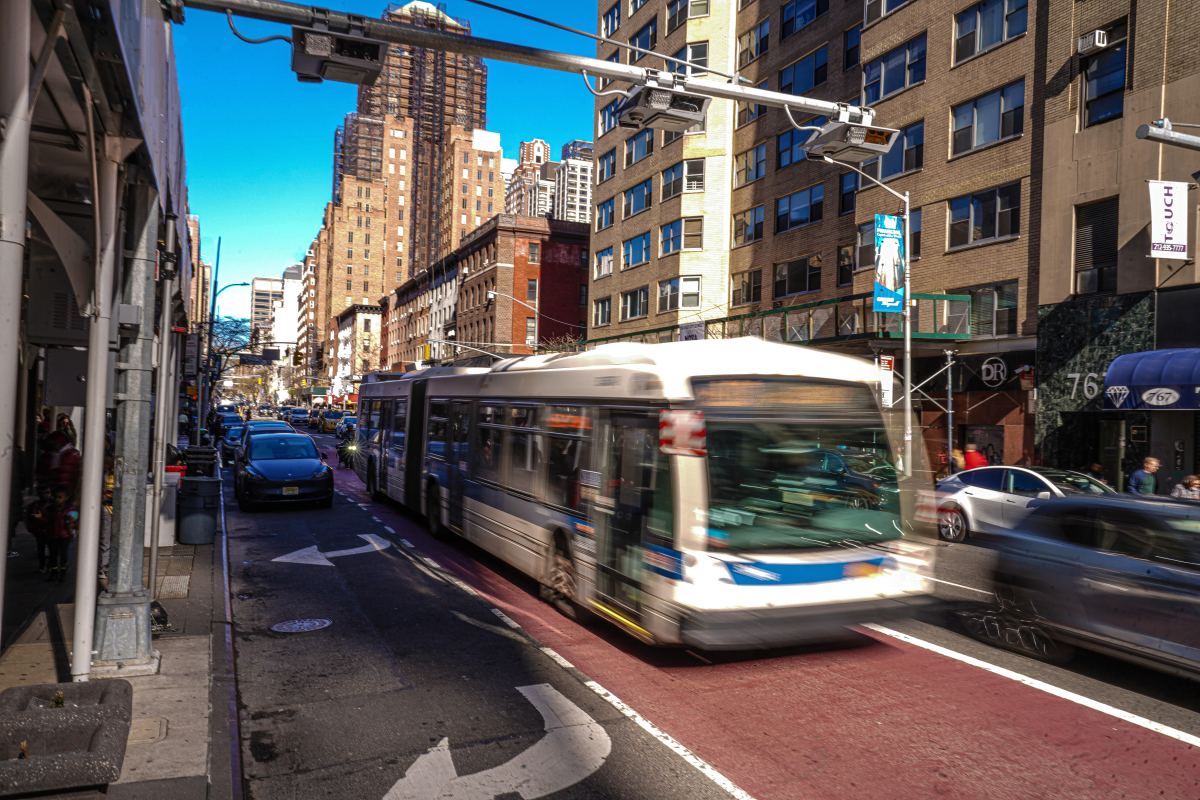
When she approached a supervisor asking for a reasonable accommodation, she was approved for only two weeks. Rejected for disability benefits, she has been out of work without pay since March, and recently received a letter of termination.
“I didn’t know that you can get terminated for being pregnant or having a child,” said Christian. “Having a child is not a disability. There’s jobs out there for us to do. There’s jobs in the depot for us to do.”
Relegated to light cleaning
Theresa Rodriguez, a 33-year-old on the job for a year out of the Fresh Pond Depot in Queens, has been on unpaid leave for the past 2 1/2 months as her pregnancy advances to her May 28 due date. She had cerclage surgery back in December but, fearing she’d lose her job, asked her OB-GYN to write a note clearing her to return to work sans restrictions, something the doctor did “with reservations.”
Facing emotional and physical discomfort on the job, and unable to perform physical tasks due to her cerclage, Rodriguez requested an accommodation and, like Christian, got light cleaning duty known as “decks and dashes” for two weeks. Afterwards, her supervisor said the MTA “puts you out of work unpaid.”
Following that, she had to use up all her paid time off before ultimately going on unpaid leave.
“My savings have been depleted. I’ve been struggling to pay my bills, feed myself,” said Rodriguez. “I’m asking that Transit please, please find something for bus operators to do within, or even outside, of our depots. Anything will help aside from putting us out of work without pay. This is the worst thing that could possibly happen to anyone, especially expecting a child, especially if you’re a single mother like I am.”
The six plaintiffs in the suit against the MTA, including Christian and Rodriguez, say the transit authority is in violation of New York City’s human rights law by failing to provide reasonable accommodations, and are hopeful a judge will restore them to paid status and compensate them for their lost job time.
MTA general counsel Paige Graves declined to comment on the specifics of the pending litigation at the agency’s board meeting on Tuesday.
Unlike bus drivers, subway operators are eligible for light-duty job accommodations, the result of an MTA “pregnancy task force” formed after a conductor agonizingly gave birth to a stillborn baby at the Coney Island train yard in 2020.
While employees of the MTA are entitled to maternity leave after giving birth, like much of the American public and private sector, prenatal leave remains elusive in the U.S. Earlier this year, Gov. Kathy Hochul signed into law a first-in-the-nation program mandating 20 hours of paid leave per year for pregnant women to attend medical appoints or procedures.




